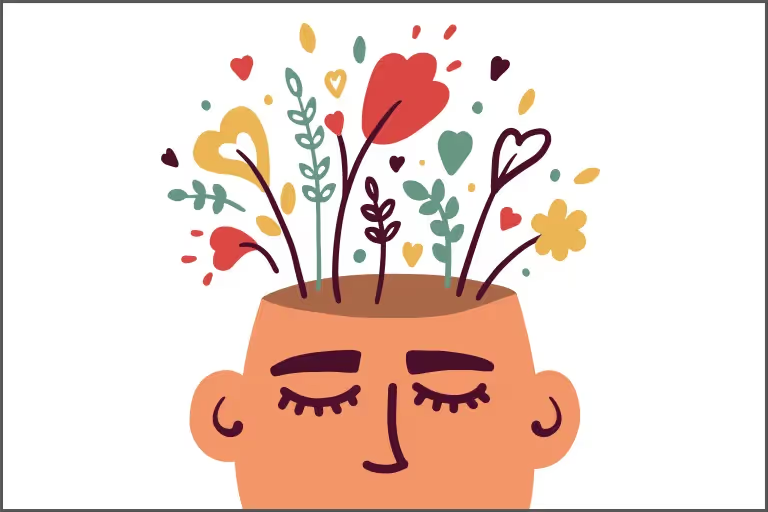Have you ever struggled with anxiety?That feeling like everything is going to go wrong and there is nothing you can do about it?Or, you spend so much time...

Have you ever struggled with anxiety?
That feeling like everything is going to go wrong and there is nothing you can do about it?
Or, you spend so much time and effort trying to make sure that NOTHING goes wrong at all?
Well, you're not alone.
Anxiety is one of the tops reported mental health issues faced by millions of people around the world.
Turns out, anxiety is pretty much universal- unless you happen to be living in a Buddhist monastery.
Anxiety has been a serious topic of discussion since, well forever, and has been explored and debated in religious circles, philosophy lecture halls, and medical board rooms.
But have there been any conclusions about it?
Any breakthroughs that can eliminate anxiety?
As it turns out, those Buddhists might have hit the nail on the head a couple of thousand years ago, but let's look at what the most up-to-date neuroscience has to say about it first.
Today we are going to look at how anxiety hijacks your brain, why it feels so intense, and what you can start doing today to find your inner Zen and ditch anxiety.
To kick things off, what does neuroscience say?
Well, anxiety starts in the Amygdala; the amygdala is a very, very old region of the brain (from an evolutionary perspective) that essentially does one thing, alerts the rest of the brain to fear.
The amygdala is a small, almond-shaped, mass of nerves in your brain that is the origin point of all your anxiety.
The amygdala responds to sense data (sight, smell, sound, touch, taste) and rings a powerful alarm that goes straight to the seat of self-perception, the Dorsolateral Pre-frontal Cortex (DLPFC).
From there the brain turns on the sympathetic nervous system which causes a whole variety of bodily sensations; increased heart rate, shortness of breath, muscle tension, sweaty palms, etc.
Essentially this experience is your fight or flight response and normally is reserved in situations of fear.
What's crazy is that all of this can happen just by thinking about a situation that evokes fear, the anticipation alone is what activates all these things despite being completely safe.
While this is happening all you can think about is how to avoid the potential danger or fear, or escape the immediate cause of that fear.
This is how anxiety hijacks the brain.
It pours all your focus and energy into a hyperfocused state in an attempt to get you to physical safety.
The problem is, you're already safe, the threat is only in your mind.
It's not all bad news though.
And this is where the breakthroughs come in handy.
Not only can you re-take control from your hijacked brain, but you can prevent it from getting hijacked, to begin with.
The trick is to decrease the activity of the amygdala.
If the amygdala is calm and less active, then that means less anxiety; less anxiety means more room for feelings like satisfaction, calm, and even joy.
So, what does neuroscience tell us about calming the amygdala? A lot!
There are several different ways to achieve this goal, and they're quite easy and don't too much time.
All we have to do is become Buddhist monks!
Just kidding, we just have to borrow some of their techniques like mindfulness, breathing meditation, and focus.
Buddhists have known for centuries what modern science is finally proving through experimentation and measurements.
Meditation, of pretty much all varieties, has been proven to decrease anxiety by specifically quieting the amygdala.
In addition to lowering blood pressure, improving focus, decreasing depression, lowering heart rate, and benefitting essentially every single chronic illness known to mankind.
So, how do you start?

Here's the best news of all, it's SUPER simple.
I'll give you a couple of different approaches to get you started.
The first is a focus meditation:
This next one is a breathing meditation:
That's it!
These are the two simplest, most effective forms of meditation that will decrease the activity of the amygdala and decrease your anxiety.
Practice makes perfect so do this every single day and enjoy how you slowly start to take control of your brain back and prevent it from getting hijacked in the future.
Everyone experiences anxiety from time to time.
Awkward social gatherings, company or school presentations, meeting someone new, going out on a first date, the list goes on and on.
Now you know what is happening in your mind that is creating that anxiety.
The amygdala is freaking out and telling you that you're in danger when you really aren't.
The answer?
Find your inner Zen.
The more often you meditate using either the focus or breathing meditations offered above, the less anxious you'll feel in the moment and the less anxiety you'll have over the long run.
Anxiety is a natural part of life, but being helpless isn't.
You can prevent your mind from getting hijacked 5 minutes at a time, you just need to take it!
The meditations above are just the beginning; there are tons of different meditation styles and techniques so get curious and do some research.
Find the types that work best for you.
Ignoring anxiety can exacerbate symptoms and make it more challenging to manage over time. This can result in a negative impact on your personal, professional, and social life, leading to feelings of isolation and even depression.
Other activities which have been found helpful in reducing both immediate feelings of anxiousness and long-term anxieties associated with chronic disorders include yoga, journaling, nature walks, art therapy, volunteering, and other low-stress activities. Additionally, developing a healthy lifestyle incorporating adequate sleep, physical activity, and nutritious meals can help reduce overall stress levels.
Addressing anxiety is crucial because it can significantly impact your quality of life and overall well-being. Left untreated, anxiety can lead to more severe mental health issues, relationship problems, and difficulty functioning in daily life.
To reduce your anxiety, you can practice relaxation techniques such as deep breathing, progressive muscle relaxation, guided imagery, and mindfulness practices. Additionally, regular exercise has been found to be beneficial in managing stress and improving mental health.
It's important that you feel comfortable discussing personal matters with your therapist in order to open up and get more out of therapy sessions; therefore finding someone who meets certain criteria like experience level, expertise areas, and personality is key when selecting a therapist who can give meaningful feedback about how best handle issues related to anxiety or other mental health concerns.
Yes, Medicaid provides insurance coverage for therapy services specifically designed to help individuals struggling with anxiety, depression, and other mental health conditions.